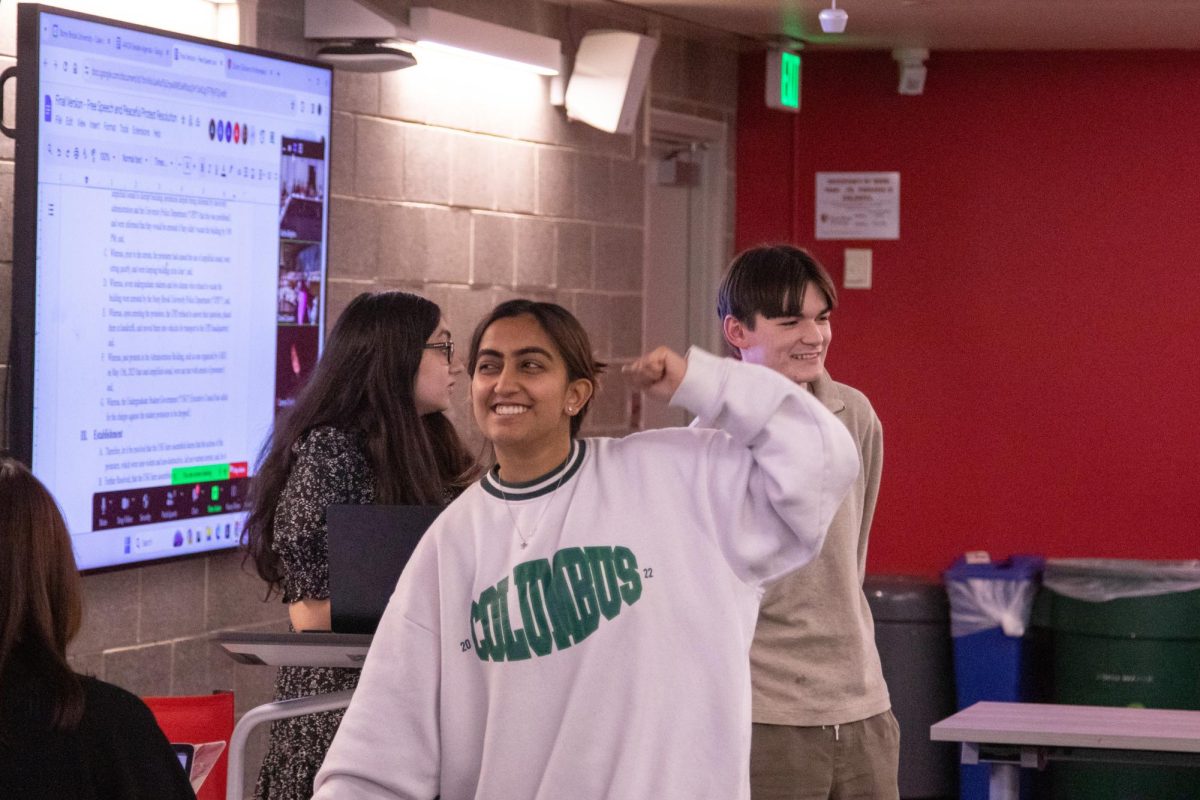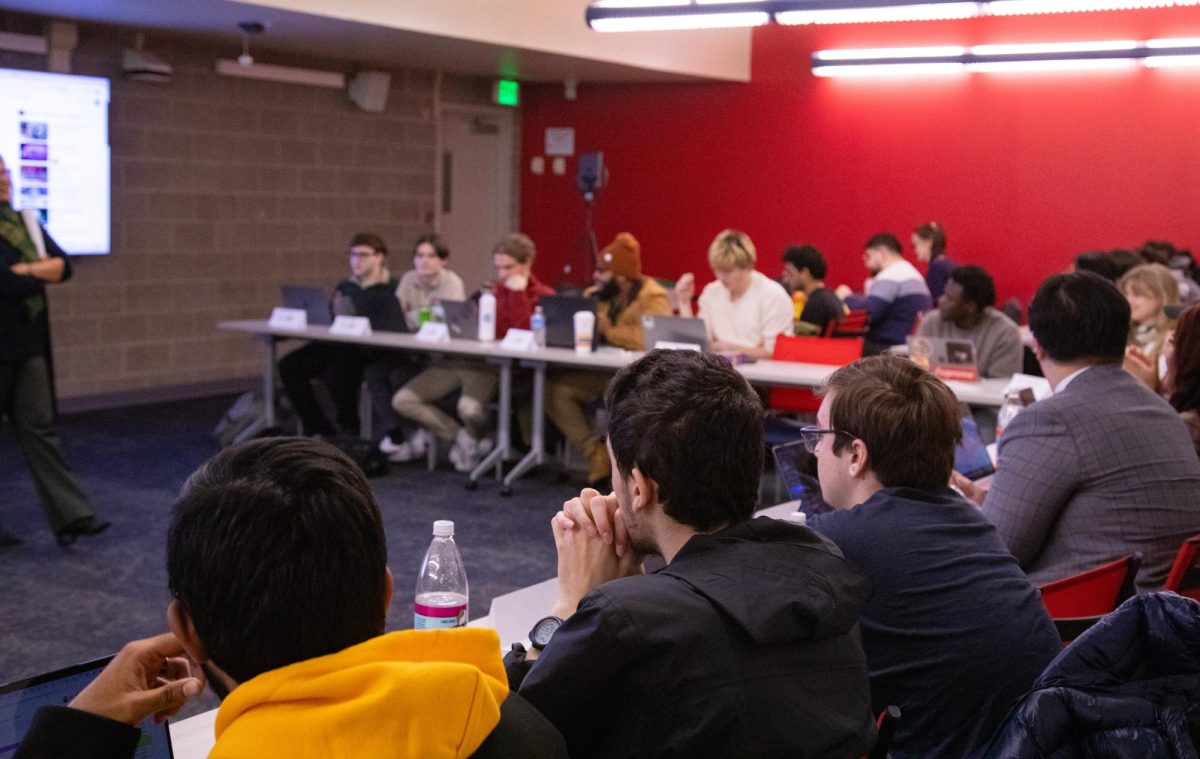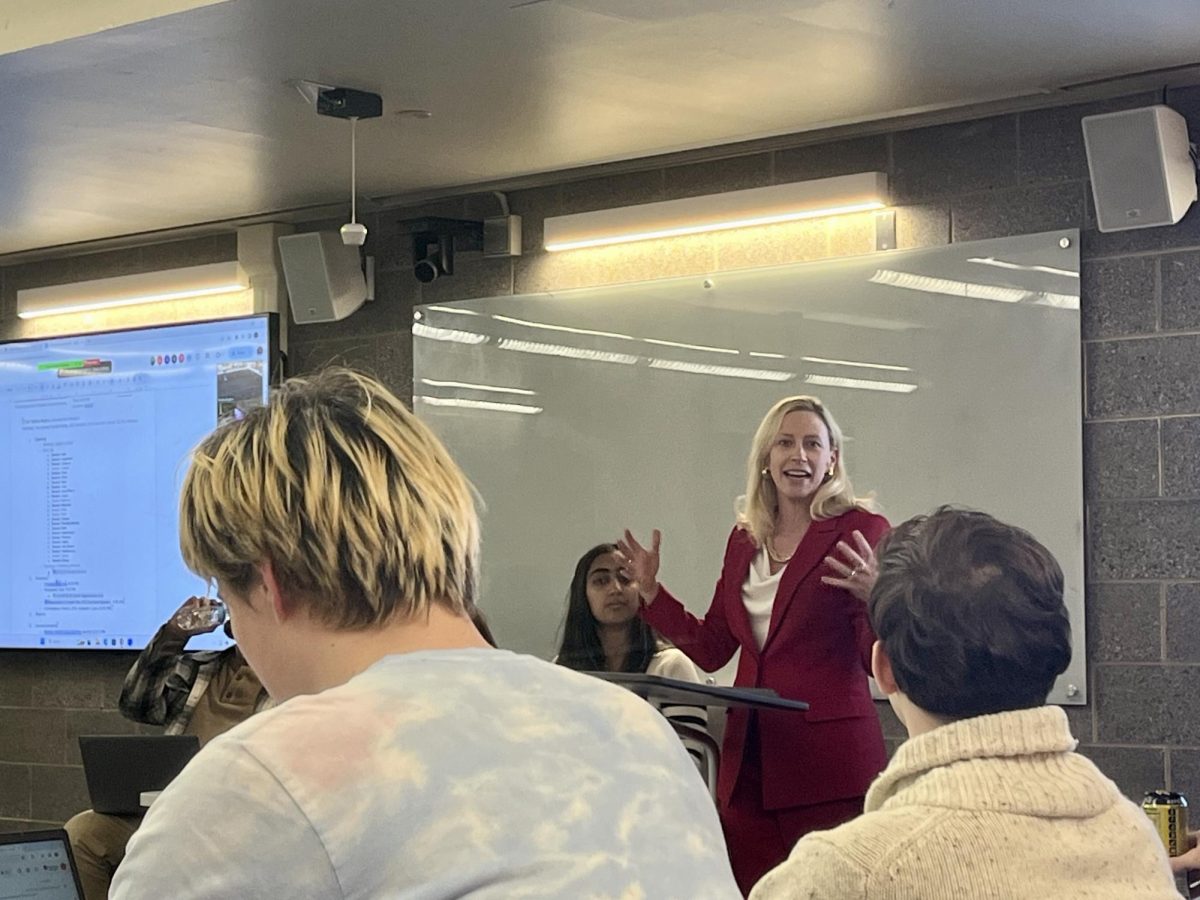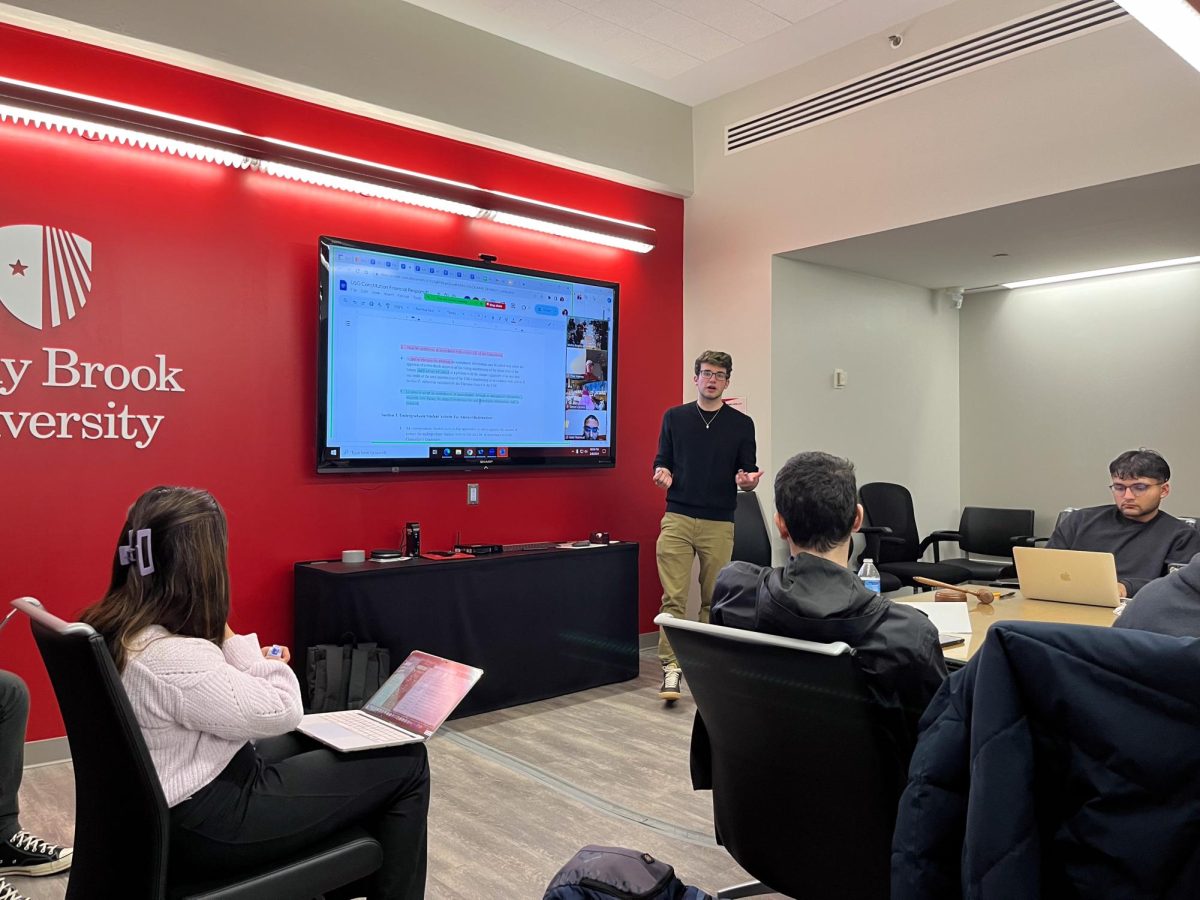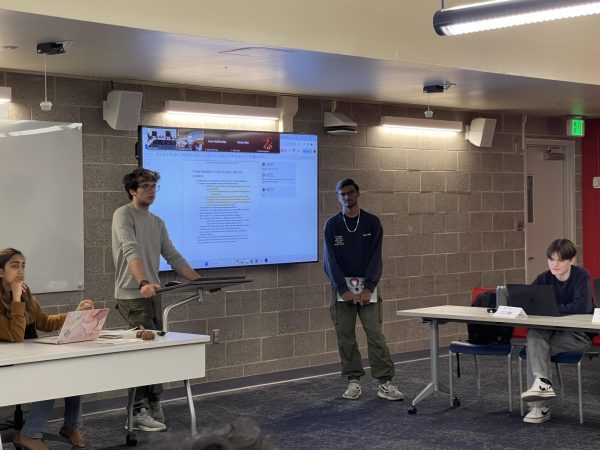
Stony Brook University’s Undergraduate Student Government (USG) Senate has started to consider new financial bylaws.
USG President Devin Lobosco and Treasurer Amitesh Reddy Akiti presented potential revisions to multiple sections of the financial bylaws to the Senate on Thursday, April 11.
Lobosco began the discussion by emphasizing how efforts have been made to encourage club leaders to join in on the discussion of the financial bylaw revisions by hosting virtual office hours with USG leadership.
Lobosco then said that USG will most likely approve sections of the revisions one at a time, given the large number of changes in each revision.
“This will be the first week of the two weeks [of discussion],” Lobosco said. “Do I think we’re going to fully approve this document next week? No, I’m not delusional.”
The first bylaw to be discussed is related to memorandums of understanding (MOU). An MOU is an agreement that certain organizations have with USG that allows them to receive funding without abiding by the same requirements as a normal club on a line budget — the normal process by which clubs receive funding from USG. This agreement exists because certain organizations cannot abide by all of the policies that are set in place by USG for having a line budget.
Currently, there is no existing language in the financial bylaws that outlines what rules MOUs must abide by.
The new proposal keeps nearly everything USG does currently, such as requiring MOUs to provide an end-of-year expenditure report. However, USG introduced new rules requiring MOUs to provide a mid-year expenditure report during the fall semester and projected expenditures for the spring semester.
Additionally, the treasurer or the Senate can request additional expenditure reports, proof of purchases and expenditure plans at any point during the academic year.
At-large Senator Yuchen Zhang asked how USG would ensure that MOUs will provide these reports, given that the money is already provided to them.
USG Administrative Manager Carlos Cabo stated that MOUs are given two checks throughout the academic year and that the money is adjusted accordingly if circumstances change.
“That’s always been the standard to issue two [checks], one at the end of the fall semester and then the other one at the beginning of the spring semester,” Cabo said.
The Senate then discussed whether USG should keep the 50% food spending limit budget. This financial bylaw states that USG-funded clubs are not allowed to spend more than 50% of their allocated budget solely on food in a given academic year.
“I want the 50% cap to be there unless there is a better cap that is determined by the Senate instead of completely removing it,” Akiti said.
Earlier this year, the Muslim Students’ Association (MSA) and Psychology Student Alliance (PSA) both presented in front of the Senate, asking for their respective clubs to be exempted from the food budget limit.
MSA requested to be exempted from the bylaw so they could offer Iftar platters three times a week for three weeks to students observing Ramadan. PSA requested to be exempted in order to have enough food provided at their annual galas.
Both clubs argued that despite their best efforts at budgeting for the academic year, there was no way they could host their events at the capacity they wanted to with the financial bylaw in place. These two situations prompted USG to reconsider the nature of the rule.
In a show of hands prompted by Zhang and Lobosco, four at-large Senators voted to keep the financial bylaw in place, eight voted to find some alternative and five voted to remove the limit entirely. Five at-large Senators were not present for the meeting. The Senate then discussed possible alternatives for the food cap.
Zhang proposed to have a sliding scale.
“What about a sliding scale? X amount or X percent, whatever is higher,” Zhang said.
Zhang clarified his question and said that clubs can either have a flat limit or a certain percentage of their budget that can be spent solely on food.
At-large Senator Adam Pareek proposed to raise the food spending limit to 80%. Pareek and at-large Senator Uzair Mahmud were the only ones who showed support for the proposal. The discussion then went back to Zhang’s proposal of a sliding scale.
Akiti added that there should be a maximum percentage and flat number of what a club could spend on food in order to address both small and large-budgeted clubs.
“There should be a maximum cap [for] increasing the percentage number so that it helps lower-budgeted clubs, but also having a maximum cap so that it prevents like too much usage of food, that’s what I would want,” Akiti said.
Incumbent Treasurer Akiti gave insight into how the Treasury Office functions.
“I want to make it as simple as possible,” Akiti said. “The more complicated you make it, the more likely the treasury is not going to care and to not enforce the caps.”
At-large Senator Alexander Van Geuns suggested flipping around what Akiti suggested.
“Instead of having a percentage up to a hard cap, just have a club spend up to $2,000 or 50% of their line budget, [whichever] one’s higher,” Van Geuns said. “That solves for lower-budget clubs being able to spend but also being proportional [to larger-budget clubs].”
At-large Senator Antonios Manolis stepped into the conversation, stating that he was concerned about clubs spending all of their budgets on food.
“My concern with a system like that is that small clubs [would spend] all of their money on food and not like actual club functions,” Manolis said. “How would they grow as a club if they are spending on not-club stuff?”
Daniel Canavin, a representative of the Commuter Student Association (CSA) and at-large Senator, responded to Manolis’ question.
“I want to make the point, although I don’t want to speak for all the clubs on campus, in my experience, there are groups, whether it may be cultural or religious, where food is the main facet of what their club is trying to accomplish as far as what they’re sharing with the student body,” Canavin said.
Zhang responded by suggesting that a club’s limit for spending on food could be determined by their budget.
“If a club budget is between zero and $5,000, it’s an 80% cap. If it’s between $5,000 and $10,000, it’s a 70% cap. $10,000 to $20,000 is a 60% cap. $20,000 to $40,000 is a 50% cap,” Zhang said. “It’s like the sliding scale but in written form so it’s not that complicated when it’s hard numbers.”
At-large Senator Ray Chen disagreed with Zhang’s suggestion.
“It sounds like tax brackets and adds unnecessary complexity,” Chen said. “Maybe 50% isn’t the perfect number but we should have some type of limit.”
Zhang stated his final remarks on this discussion.
“My ideal is that the cap be removed completely,” Zhang said. “I really see this rule as infringing on a club’s autonomy. My whole thing with a sliding scale is so that smaller clubs can potentially spend more on food while larger clubs also get more wiggle room.”
Lobosco ended the discussion of the food spending limit by allowing the Legislative and Vetting Committee (LegVet) to make the decision.
“I’m going to let LegVet to make the call,” Lobosco said. “I’m going to pitch a couple of options to LegVet and they can decide.”














